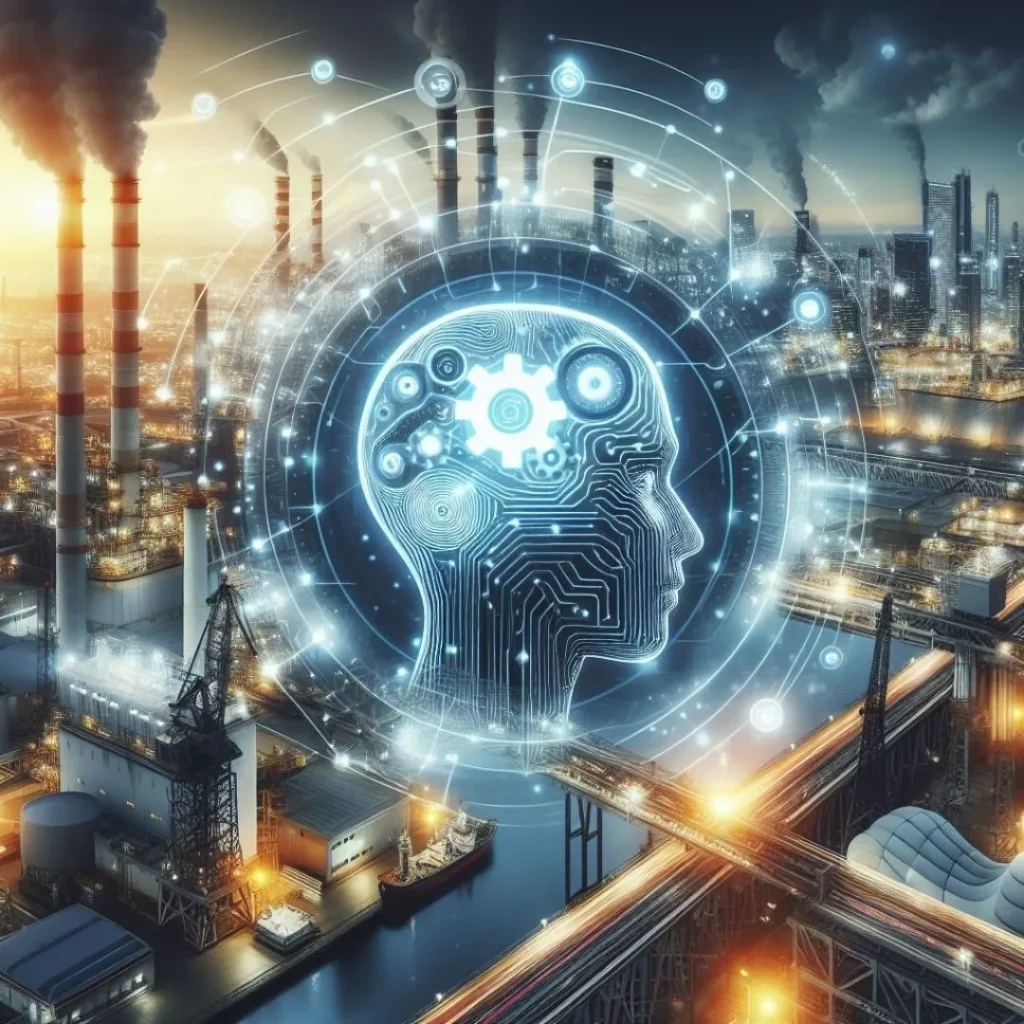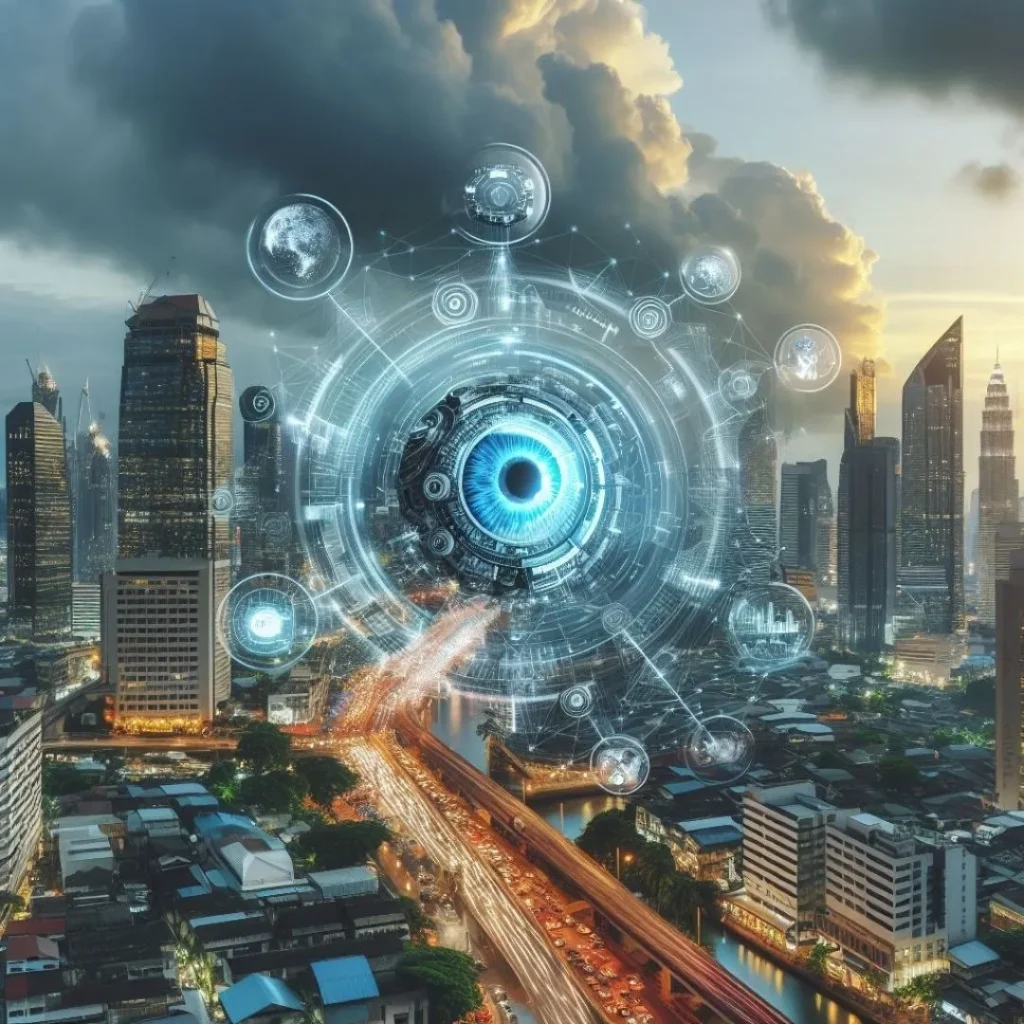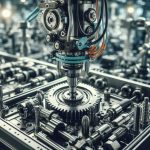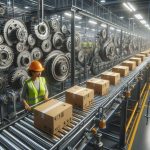
The Role of Artificial Intelligence Applications in Industry
Artificial intelligence is a rapidly developing force in the world of technology, creating radical changes in the industrial sector. Artificial intelligence, one of the cornerstones of Industry 4.0, provides significant advantages to industrial enterprises in many areas such as automation, data analysis, forecasting, decision support systems. In addition, it opens new horizons for businesses by making production processes more efficient, flexible and cost-effective.
Artificial Intelligence Revolutionizing Productivity
In the industrial sector, machinery and equipment are not just tools for production. They are also the heart and nervous system of the sector. Today, these complex systems have a new preparation – artificial intelligence. Artificial intelligence enables this equipment to do much more than just perform simple tasks. Through superior computational capabilities and the use of advanced algorithms, artificial technology “smartens” machines. So they can operate more effectively, efficiently and independently. Efficiency is often defined as the ability to produce more output with less input. Artificial intelligence is a unique example of this definition in practice.
This engineered augmentation is a milestone where machines and equipment can anticipate potential failures. Machine learning algorithms give them the ability to detect certain signs and patterns that previously only humans could notice. This provides timely alerts when there is an abnormal change in the performance of machines and equipment. As a result, this proactive approach reduces sensitivity times, making maintenance processes more efficient. This prevents unexpected production disruptions. As a result, it extends the lifespan of machines and greatly increases the return on investment of businesses.
In addition, artificial intelligence expands the capacities of robotic systems. With the help of AI algorithms, robots can quickly and precisely perform complex tasks previously performed only by humans. This revolution in business processes significantly increases the operational efficiency of businesses, which often leads to higher profit margins and customer satisfaction. This high level of automation and efficiency of machinery and equipment is leading a productivity revolution in the industrial sector, while at the same time enabling businesses to overcome the many challenges they face.
Forecasting and Strategic Planning with Artificial Intelligence
Artificial intelligence has emerged as a dynamic force shaping not only industrial enterprises but also the global economy. The capacity to collect and process data on an industrial scale gives it an almost crystalline prophetic power – developing the ability to predict the future. This digital innovation has revolutionized complex components such as demand forecasting, warehouse management, production and logistics planning. Analyzing dazzling data sets, AI runs detect even the most subtle currencies in customer demand and use these records to determine the moves to build structures. Here, AI deployments undergo a qualitative transformation through intuition. Bringing this transformation to market raises the bar for strategy and operations in the right directions and with speed.
Machine-accessible and artificial intelligence disciplines such as deep learning are used to predict details, especially with regard to customized demand trends. This is an indispensable requirement for optimizing the nominal stock run, running production as fast or as slow as needed, and keeping it up and running as quickly and cost-effectively as possible. Artificial intelligence minimizes the risk of overstocking, minimizes the risk of stock-outs, the flexibility of sectors based on financial scale economics, as well as customer growth increase becomes a factor. Here, the analytical depth of AI’s analytics, present in the current market conditions fraught with activity, contributes to a solid step forward and provides the ability to respond quickly and effectively to the rapidly changing transformation. As a result, the AI-powered forecasting scheme guides every step from production to final delivery in a reporting-based, intelligent and flexible way.

Artificial Intelligence Revolution in Quality Control
Quality control is a vital issue for industrial enterprises that have to compete with high production standards. Artificial intelligence automates quality control processes with image processing and deep learning techniques. This enables defective products to be detected and discarded at an early stage, reducing production errors and guaranteeing consistently high levels of quality.
Flexible Manufacturing and Personalization: The Benefits of Artificial Intelligence
Modern consumer demands are changing rapidly and the demand for personalized products is increasing. AI offers businesses flexible production capabilities in this dynamic environment. Production lines are rapidly reconfigured thanks to machine learning. Thus, products can be produced to meet the customized needs of customers.

Employee Integration with Artificial Intelligence
The integration of AI in business processes increases employee productivity and job satisfaction. Human-machine interaction (HMI) technologies facilitate employee interaction with AI-enabled systems. This speeds up training processes and encourages efficient workflows.
Artificial intelligence is helping businesses overcome the challenges they face by providing a competitive advantage in the industrial sector. This revolutionary technology makes significant contributions to businesses in areas such as productivity, planning, quality control, flexible production and workforce integration. Successful implementation of AI applications requires the right strategy, sufficient investment and extensive human resources. Therefore, businesses need to invest in AI technologies in order to stand out in a changing world and move forward with more solid steps into the future.


